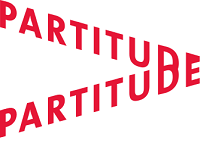Why
Select an i-section for more information.

Survival exists when knowledge and technology are in order and processes are designed to achieve results. Then structure has its natural role as an aid to performance. However, structures and processes often become the main objective. This leads to the decrease of organisational performance. Partitude facilitates coherence between all factors for result and return, resulting in successful structures.
Organisations are in a permanent state of change and constantly challenged for a quick and effective response to new developments. Clear vision and direction are key to be able to anticipate the world of (the day after) tomorrow. This does not include a fragmentary approach. Partitude facilitates the directing of strategy and policy, resulting in an integral response to all changes.
Human drive as a success factor in organisations is possible through (personal) leadership. The degree of being future-proof is determined by the people who commit themselves to it. Where leadership focused on the collective purpose is missing, exemplary behaviour and trust are lost. Partitude facilitates the nourishing of intentions and drivers, resulting in a permanent connection between management and employees.
Professionals have a single interest; doing a great job. Getting the best out of others and yourself, driven by passion and with love for the profession. Reality shows barriers and obstacles here. As a result, added value is lost. Partitude facilitates the professional on the way to personal strength, with the result that talent is of value to the organisation.
Growth is garantueed when development is made important. People possess a reservoir of competences and this means that teams consist of a potential of knowledge, skills and art. Maintaining, improving and renewing this is rarely actual policy. Partitude facilitates the art of delivering integral achievements with the result that all organisational levels stay up to date and ahead.
Management is constantly confronted with the question how to organise people and organisation efficiently. Reorganising and investing in models and methodologies are not the solution, are driven from a few angles and create "residue" (unused potential). Repetition of moves often is the result. Partitude facilitates the permanent change capacity with the result that the organisation's potential has been utilised.
